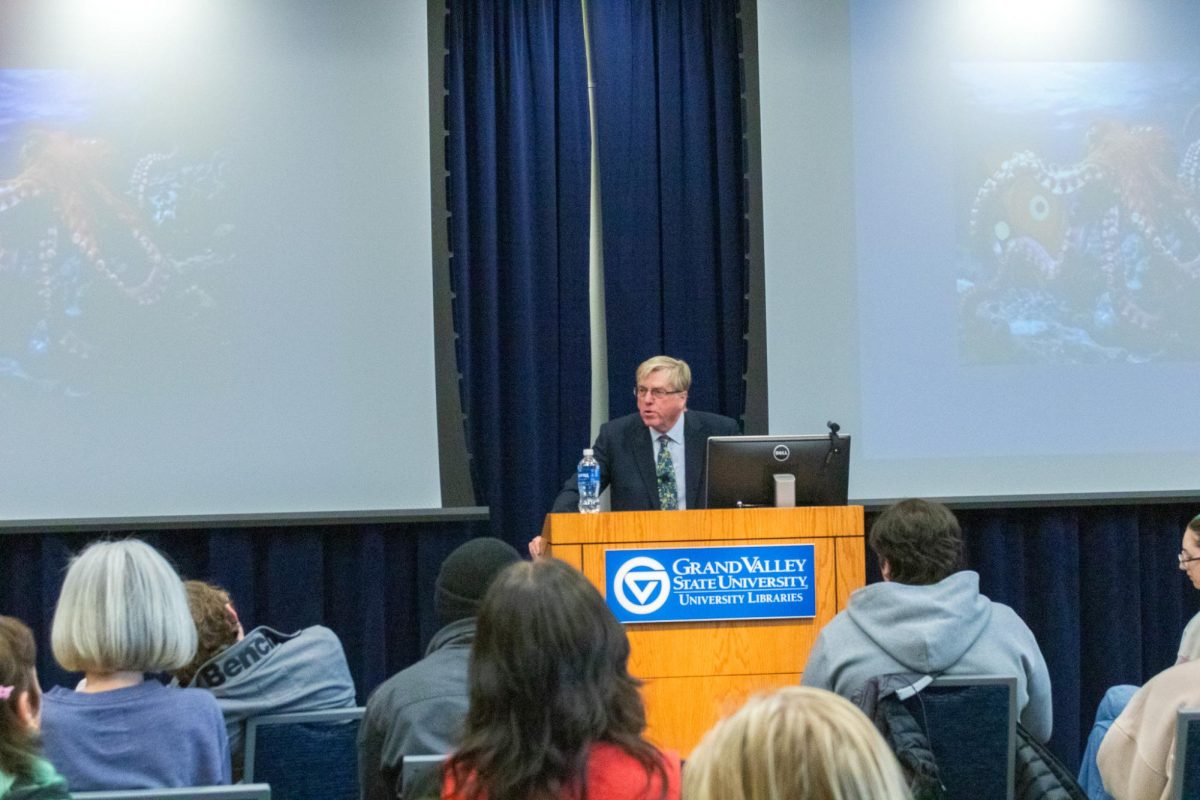Islam on campus provides positive message

Dec 9, 2010
Though Islam is not the most-commonly practiced religion among students at Grand Valley State University, different groups on campus do their best to include the faith in everyday life.
Several Christian faith-based organizations exist on campus, such as InterVarsity, Campus Crusade for Christ (Cru), His House Christian Fellowship and Young Life. Still, many students and faculty members on campus practice Islam despite the vast influence of Christianity on campus.
The Muslim Student Association, which has more than 100 members at GVSU, actively works to spread the true message of Islam and counter negative stereotypes that exist in the media.
Sebastian Maisel, professor of Arabic and Middle East Studies and adviser to the MSA, said the organization’s main goal is to follow the articles of faith, the five main pillars of Islam.
“That is what MSA is trying to accomplish here at GVSU,” Maisel said. “Muslim students are engaged in many activities to enhance our society – fighting hunger and homelessness, encouraging coexistence, strengthening ties between students and the community and raising awareness about problems on campus and in our society.”
The MSA also actively works to combat the negative stereotypes that conservative pundits and isolated incidents of terrorism have burdened Muslims with, such as discrimination, harassment and the threat of potential violence.
“Personally, I have seen discrimination against Muslims at airports, in public life and of course in the media and public opinion,” Maisel said. “Education and outreach, collectively by the MSA and other organizations, is a way to combat that.”
In facing that discrimination first-hand by always being subjected to re-checks at airports, senior Maariya Husain said she meets adversity when traveling abroad and within the United States with a positive outlook.
“I remind myself, especially at Grand Valley, that I represent Islam,” Husain said. “Individuals that have never met someone of Islamic faith before meeting me will look to me as a representation. It’s really hard to be in a country in which your religion is represented incorrectly, but I have to make it a goal to represent it in every positive way possible.”
The daily prayer life of Muslims is busy as all adult Sunni Muslims are required to perform five prayers per day, preceded by ritual cleansing or purification of the body. The Fajr, Zohr, Asr, Maghreb and Isha are offered throughout the day at dawn, around noon, during mid-afternoon, at sunset and once the sky has darkened, respectively. The prayers must be made in the direction of the Ka’aba, which is currently in Mecca, Saudi Arabia.
For Husain, who attends MSA meetings when she can and is also a resident assistant for the Niemeyer West living center, the prayer regimen is occasionally difficult for a busy college student.
“It has been difficult at times,” she said. “I try to schedule my classes so that I have a break, but even that can be difficult.”
Her position as a resident assistant, however, has allowed Husain to promote Islam as a peaceful religion to curious residents, something she said she has enjoyed.
“I have had a couple residents who have been curious or wanted to learn about Islam ask me about my religion,” she said. “They have all been very respectful and amazing.”
Islam does not have a religious hierarchy, so each individual Muslim is free to answer what Islam’s true message is. Ultimately, the majority of Muslims follow the same several core principles, Maisel said.
“Love the one God, love and support your neighbor and follow the articles of faith,” he said.
Mariya Chakir, a GVSU Arabic professor, said Islam’s message blends prayer with beneficial and kind actions.
“Islam emphasizes on monotheism and enjoins the submission to the will of God, and it urges everyone to follow the exemplary life of Mohammad,” Chakir said. “Tolerance, passion, forgiveness and respect of others are very important.”
The fundamental principles of Islam and Christianity are more alike than they are different. Both religions stress a connection with one God, living positive, giving lives and being respectful toward others.
For Husain, these things have been fundamental in shaping her identity and how other students see her.
“The meaning of Islam is different to every individual that you ask, but to me, Islam guides me on how to live every aspect of my life,” she said. “It teaches me how to be respectful, be giving and connect with Allah.”






















